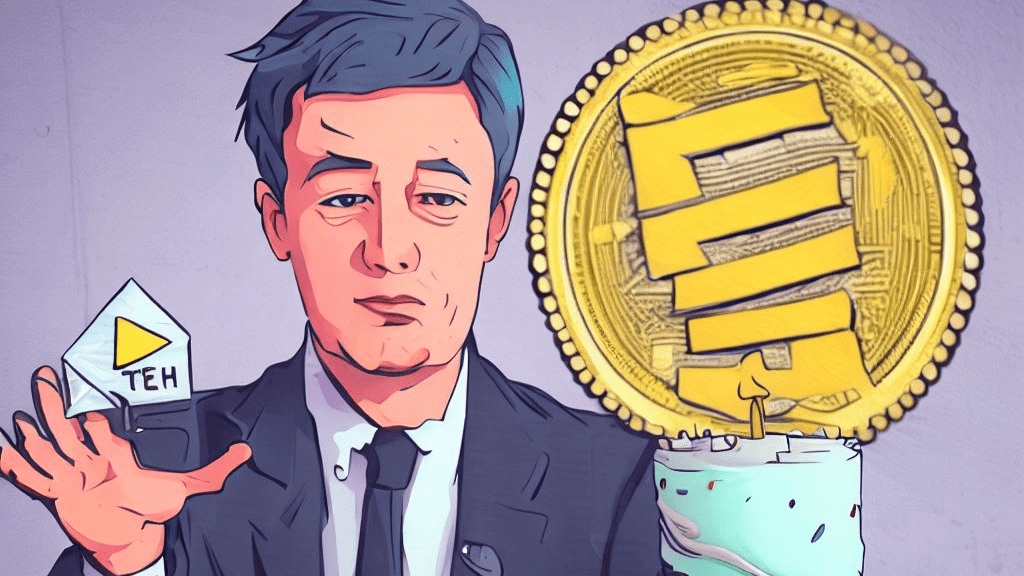
In a recent turn of events within the crypto sphere, Tether, the prominent cryptocurrency stablecoin issuer, found itself embroiled in a controversy that raised concerns among Singaporean crypto enthusiasts. The uproar began when Dr. Julian Hosp, CEO of Cake DeFi, took to social media to share an email from Tether indicating changes in their onboarding standards, specifically impacting Singapore-based entities. However, Tether’s Chief Technology Officer, Paolo Ardoino, swiftly responded to the allegations, setting the record straight and shedding light on the situation.
The Confusion Unveiled:
The controversy started when Dr. Julian Hosp, at the helm of Cake DeFi, posted a screenshot of an email he received from Tether. The email appeared to suggest that Tether was altering its onboarding standards, explicitly stating that corporate entities under the control of another entity or with directors and shareholders residing in Singapore would be barred from using Tether’s services. This revelation immediately sent shockwaves through the crypto community, particularly those based in Singapore, raising concerns about potential restrictions on their crypto activities.
Tether’s CTO Dispels Misconceptions:
In response to the escalating confusion, Tether’s CTO, Paolo Ardoino, took to social media to clarify the situation. In a message that was as candid as it was concise, he urged the community to verify information before making hasty conclusions, saying, “Before spreading FUD, it would be great if you guys did take a look at webarchive… This is Jan 2022…. And if you open the link below: Last updated: May 12, 2020… Again, take a moment to search and verify information before YOLO posting.” Ardoino’s post provided critical insight by highlighting that Singapore had been listed as a prohibited jurisdiction by Tether since 2020, which meant that the recent email was not indicative of any recent policy change.
The Historical Perspective:
Indeed, an examination of web archives from Tether’s official website corroborated Ardoino’s assertion, revealing that Singapore had been classified as a prohibited jurisdiction for Tether’s services since the middle of 2020. This historical perspective unveiled that the recent uproar was, in fact, a misunderstanding rather than a shift in Tether’s policy towards Singapore-based entities.
Bake DeFi’s Crypto Journey:
Bake DeFi, a decentralized finance (DeFi) platform, plays a crucial role in this narrative. The platform has gained recognition for its promise of providing stable yields on cryptocurrency investments. Dr. Hosp’s assertion that they could no longer redeem USDT into USD due to Tether’s alleged policy change added to the confusion surrounding this incident. However, as clarified, this was not a direct result of Tether’s actions.
The Ripple Effect of Misinformation:
The initial confusion stemming from Dr. Hosp’s post inadvertently led to widespread concerns within the crypto community. Some feared that the developments were linked to a significant money laundering crackdown in Singapore. On September 21, Reuters reported that Singaporean authorities had seized approximately S$38 million (approximately $27.8 million) in cryptocurrencies during anti-money laundering raids. The confluence of these events only served to intensify the apprehensions among cryptocurrency enthusiasts.
Additionally, Singapore’s new President, Tharman Shanmugaratnam, is known for his cautious stance on cryptocurrencies. This, too, fueled concerns within the crypto community about potential regulatory challenges and restrictions ahead.
A Lesson in Due Diligence:
This incident serves as a potent reminder of the importance of conducting thorough research and fact-checking in the volatile world of cryptocurrency. Misinformation and misinterpretation can easily trigger unnecessary panic and confusion, as seen in this case. In a space where trust and transparency are paramount, the responsibility falls on both individuals and entities to verify information before making claims or assumptions.
Conclusion:
The recent turmoil surrounding Tether’s purported policy change for Singapore-based entities turned out to be a misunderstanding rooted in misinformation. Tether’s CTO, Paolo Ardoino, provided clarity by pointing out that Singapore had been on the list of prohibited jurisdictions since 2020. The incident underscores the importance of responsible information sharing and due diligence in the cryptocurrency sector, where swift reactions to unverified claims can have far-reaching consequences. As the crypto industry continues to evolve, staying informed and discerning fact from fiction will be key to navigating its complex landscape.



Get the latest Crypto & Blockchain News in your inbox.